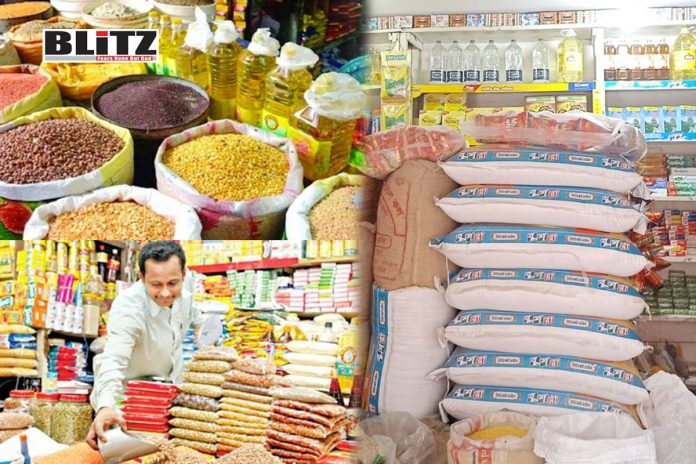As the holy month of Ramadan approaches, residents of Dhaka and Chittagong find themselves grappling with a surge in prices for essential commodities such as chickpeas, dried peas, dates, and soybean oil. The escalating costs are attributed to a combination of factors, including a shortage of dollars, stockpiling by traders, and a devaluation of the local currency against the dollar. The situation has prompted concerns among consumers and industry experts, sparking discussions on the need for effective government intervention to stabilize prices and ensure an adequate supply of essential goods.
The root cause of the supply crunch and subsequent price hikes lies in the shortage of dollars in Bangladesh. The country has been facing a gradual worsening of the dollar shortage since the Russia-Ukraine war commenced in February 2022. The scarcity of the American greenback has made overseas transactions challenging, affecting the import of crucial commodities. Importers and traders emphasize that prices in the international market have remained stable, attributing the rise in costs to the ongoing dollar crisis in Bangladesh.
Adding to the economic woes, the Bangladeshi Taka has experienced a significant devaluation, losing 28 percent of its value against the dollar since February 2023. This devaluation has made imports considerably more expensive, contributing to the overall increase in prices for everyday essentials. The National Board of Revenue reports a decline in the import of wheat, dates, soybean oil, and lentils between October 2022 and January 2023. The impact of the dollar shortage and currency devaluation is evident as importers struggle to meet the demand for essential goods.
Importers in Dhaka and Chittagong shed light on the challenges they face amid the economic turbulence. Mahabubur Rahman, an importer based in Khatunganj, reveals that the price of dates has surged by 60-90 percent compared to the previous year, partly due to a nearly doubled import duty. Traders in Chittagong’s Khatunganj wholesale market note increases in the prices of chickpeas and dried peas, with each kilogram now costing Tk 80 to Tk 85 and Tk 65-70, respectively. The Bangladesh Vegetable Oil Refiners and Vanaspati Manufacturers Association’s recent decision to raise soybean oil prices without prior notice has also added to the financial burden faced by consumers.
In response to the crisis, the Bangladesh Bank has instructed commercial banks to prioritize Letters of Credit (LC) for the import of essential goods, emphasizing the need to ensure a steady supply until March. However, industry experts, such as Taslim Shahriar from Meghna Group of Industries, express skepticism about the practical implementation of these instructions. Shahriar highlights the difficulty of importing goods amid the dollar shortage and notes that even if LCs are opened promptly, the goods may not arrive in time for Ramadan.
Consumers in Bangladesh are feeling the impact of these economic challenges, with prices for everyday essentials steadily rising. Ghulam Rahman, president of the Consumers Association of Bangladesh, urges the government to take effective steps to curb inflation. Industry representatives, including Biswajit Saha from the City Group, emphasize that the prices of essential items are unlikely to decrease unless the value of the Taka appreciates against the dollar. Major importers bringing in essential goods could potentially contribute to a reduction in prices, highlighting the interconnectedness of various economic factors.
State Minister for Commerce Ahsanul Islam Titu has announced a stringent crackdown on traders engaged in hoarding, emphasizing that artificial shortages will not be tolerated. The government is gearing up to tackle the issue and has scheduled a meeting with representatives from the ministries of finance, commerce, food, and agriculture, as well as the Bangladesh Bank. The objective is to formulate strategies to control prices, stabilize the market, and ensure a sufficient supply of essential goods.
As Bangladesh prepares for the observance of Ramadan, the economic challenges stemming from rising prices and supply shortages cast a shadow over the festivities. The intersection of a dollar shortage, depreciating currency value, and stockpiling practices by traders has created a complex web of challenges. The government’s commitment to addressing the crisis through a crackdown on hoarding and prioritizing essential imports is met with skepticism from industry experts, who argue for a more comprehensive and long-term strategy to stabilize the market.
The meeting of government representatives from various ministries indicates a recognition of the urgency of the situation, but the efficacy of their proposed measures remains to be seen. As the nation navigates these economic uncertainties, the focus must extend beyond immediate crisis management to the implementation of sustainable policies that can bolster the resilience of the economy in the face of future challenges.




